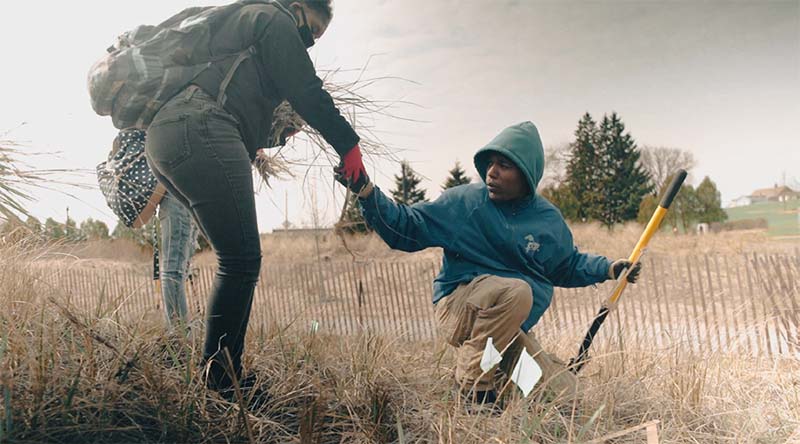What is the Great Lakes Civilian Conservation Corps?
At the heart of what we do is workforce development in the seven counties of Southeastern Wisconsin. We facilitate unique skill development and offer opportuni-ties for corps members who come from all walks of life. Our focus is primarily along the shoreline of four coastal counties: Ozaukee, Milwaukee, Kenosha, and Racine.
What has been happening in the coastal counties in terms of climate impacts?
The most dramatic and visible evidence of climate changes on our coast zone is erosion along the Kenosha-Racine border and houses falling into the water. In that region, we have worked directly with homeowners on prevention, education, and installation of green infrastructure, as well as with subdivisions on best management practices. Although we have seen our work along beachfront areas washed away by later storms, we are continuing to focus on restoration in those areas.

What would you want people to know about your work?
We are unique in bringing together veterans and young adults who don’t have a high school degree. There is magic that occurs through that partnership. Our message to the veterans is that this is a second opportunity to step up and serve your country. The veterans act as mentors to the young adults, and the young adults contribute the [physical strength]. Together they form this little army that is out to do good for the community.
What have you learned as you have done projects?
All these projects offer opportunities for skill development for our crew members. The crew members move from being the physical labor to being ambassadors on climate change and the impacts on the coastal zone. They see the rebuilding that needs to happen from repeating storms and can speak to it personally.
What do you see for the future? Do you have hope?
Yes, absolutely. We are on the front lines with populations that have so much promise. Our crew members are discounted by others. We are putting them at the forefront to be faces of change. We are putting our young people and veterans in the lead to become the models for others to follow. That’s where I see hope.
The views and opinions expressed in this interview are those of the authors and do not represent official policy or position of the University of Wisconsin-Madison or the Wisconsin Initiative on Climate Change Impacts.